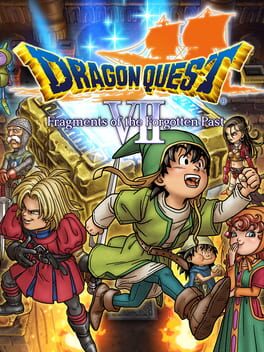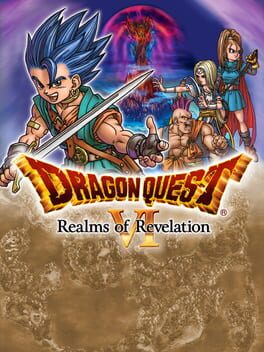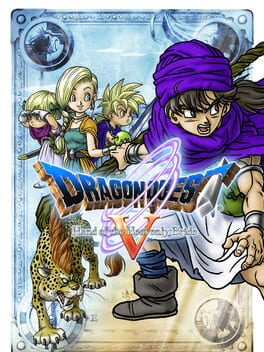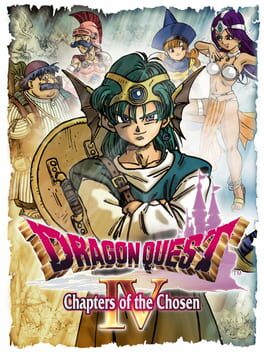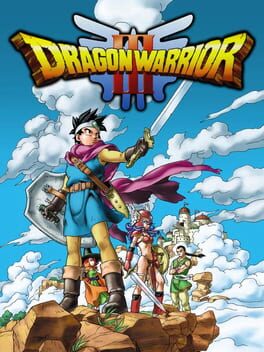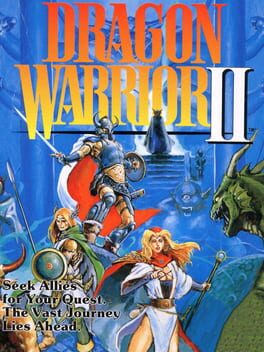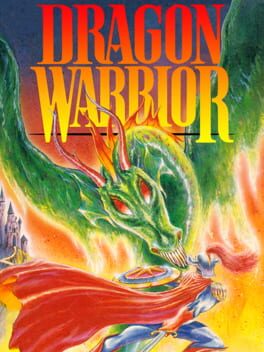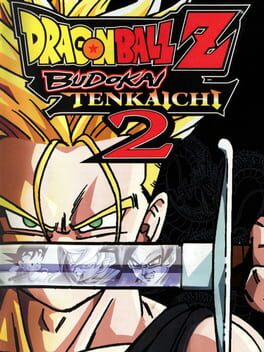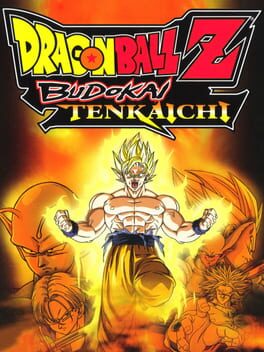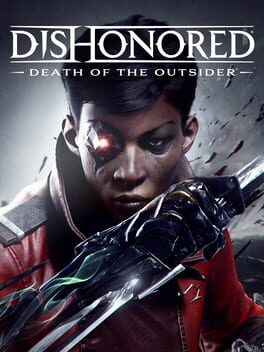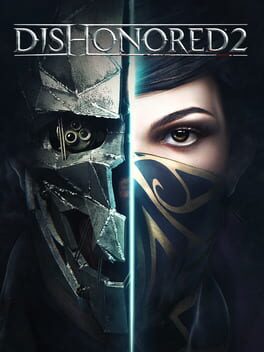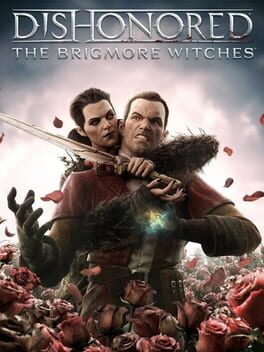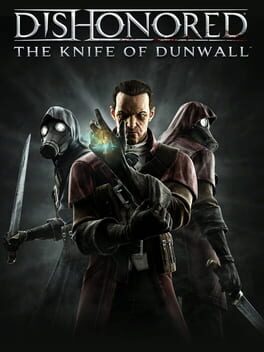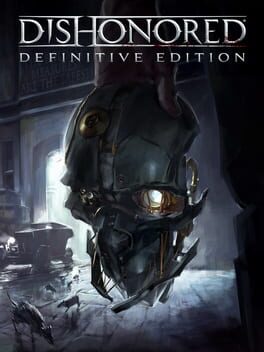EuphoriaGremlin
A JRPG infamous for its length, but proof that more content isn't always a recipe for perfection.
Dragon Quest VII starts innocuously enough, as we follow the young son of a fisherman who spends his days exploring his island home with his best friend, the unruly Prince Kiefer. When the pair find a mysterious tablet it sparks a truly massive quest that sees them dive back in time to free their world from a mighty curse that shattered the world into fragments and sealed them in darkness centuries ago. There's a brilliant structure to this adventure, with each island you visit in the past having its own complete storyline but as you get further into the story these individual plots begin to weave together into one huge narrative.
However, it's also extremely slowly paced. It takes over an hour for the first fight to occur, nearly 10 hours can go by without a full party, and I'd played for about 20 hours before I unlocked the job system - and that was still barely a quarter of the way in! If you're not a fan of grindy JRPGs then you really must avoid this game, but if you're happy to sit in for the long haul, Dragon Quest VII can be exhausting but rewarding.
Dragon Quest VII starts innocuously enough, as we follow the young son of a fisherman who spends his days exploring his island home with his best friend, the unruly Prince Kiefer. When the pair find a mysterious tablet it sparks a truly massive quest that sees them dive back in time to free their world from a mighty curse that shattered the world into fragments and sealed them in darkness centuries ago. There's a brilliant structure to this adventure, with each island you visit in the past having its own complete storyline but as you get further into the story these individual plots begin to weave together into one huge narrative.
However, it's also extremely slowly paced. It takes over an hour for the first fight to occur, nearly 10 hours can go by without a full party, and I'd played for about 20 hours before I unlocked the job system - and that was still barely a quarter of the way in! If you're not a fan of grindy JRPGs then you really must avoid this game, but if you're happy to sit in for the long haul, Dragon Quest VII can be exhausting but rewarding.
The least of the three DS Dragon Quest remakes, but by no means a bad game. We begin with our heroic party failing to defeat a big bad, who seals them in a realm of sleep and dreams. Obviously our main character manages to break free of the spell and begins a journey across both the real and dream worlds to reassemble his party. The overall story might not wow but the character writing is actually very strong and is used to explore the differences between the two worlds as characters and locations appear across them in different forms.
The world-hopping does lead to some awkward difficulties in tracking your quest though, especially if you put the game down for any length of time. Many major features - even the job system - don't become available until after 10-15 hours of play, and the fact that VI is the grindiest game in the series since II compounds the slow pacing. Not the JRPG to suddenly sell you on the genre, but a great example of it if you're already into them.
The world-hopping does lead to some awkward difficulties in tracking your quest though, especially if you put the game down for any length of time. Many major features - even the job system - don't become available until after 10-15 hours of play, and the fact that VI is the grindiest game in the series since II compounds the slow pacing. Not the JRPG to suddenly sell you on the genre, but a great example of it if you're already into them.
Simply one of the finest JRPGs of its generation. We follow our hero across the course of his life, from young scion of a mighty adventurer, through enslavement to an evil cult and finally out into the world as a questing hero gathering the artifacts of a legendary hero in order to defeat the cult that once captured him. Manages to be a rare thing indeed - a character-led story despite having a silent protagonist. The relationships that the hero builds around him, and how they morph and move over his life are brilliantly explored but without ever losing its identity as a fantasy rpg or diminishing the threat posed by the core villains.
The thing I love the most about Dragon Quest IV is its structure. The story, which concerns the ominously-named Psaro the Manslayer and his efforts to destroy humanity, is broken into chapters, each one focusing on one of the heroes who's paths will eventually all cross to form your adventuring party. It's a really strong way of presenting each character, and cements their personality and their reason for fighting, in an effective way.
As is usual for Dragon Quest, the moment-to-moment gameplay is very traditional. You'll wander around a lush fantasy world, going from town to town solving people's problems and fighting monsters in turn-based combat. The main quest is, as is common in the series, a scavenger hunt for legendary weapons, but here they're woven neatly into the world as national treasures or sealed away in deep caves and tombs. There's less freeform role-playing here than in III, but it's replaced with a strong character-led quest that hits all the right notes for fans of the series.
As is usual for Dragon Quest, the moment-to-moment gameplay is very traditional. You'll wander around a lush fantasy world, going from town to town solving people's problems and fighting monsters in turn-based combat. The main quest is, as is common in the series, a scavenger hunt for legendary weapons, but here they're woven neatly into the world as national treasures or sealed away in deep caves and tombs. There's less freeform role-playing here than in III, but it's replaced with a strong character-led quest that hits all the right notes for fans of the series.
2000
If Dragon Warrior I is the genesis of the franchise and II is the awkward explorative middle child, III represents the first truly great peak for the series. This is the game which first codifies both a ton of Dragon Quest staples, but also influenced a generation of games to come.
I love this game's approach to role-playing. At the beginning you complete an odd little personality test which determines the stats of your main hero. Party members are created and recruited in-game, and each one comes with both a class chosen from a modest range of options and an assigned personality which determines their stats and can be augmented with items. This makes for an unprecedented level of personal role-playing and connection with your party!
Both the difficulty balance and player direction have been hugely improved, making the world a sheer joy to explore, which is good because it's a pretty big world map! Towns change depending on whether it's night or day, so sometimes you'll need to revisit places at a different time of day to get more clues to progress, and there's even the first occurrence of my favourite Dragon Quest staple as the late-game pulls a stunning surprising move that entirely caught me by surprise.
I love this game's approach to role-playing. At the beginning you complete an odd little personality test which determines the stats of your main hero. Party members are created and recruited in-game, and each one comes with both a class chosen from a modest range of options and an assigned personality which determines their stats and can be augmented with items. This makes for an unprecedented level of personal role-playing and connection with your party!
Both the difficulty balance and player direction have been hugely improved, making the world a sheer joy to explore, which is good because it's a pretty big world map! Towns change depending on whether it's night or day, so sometimes you'll need to revisit places at a different time of day to get more clues to progress, and there's even the first occurrence of my favourite Dragon Quest staple as the late-game pulls a stunning surprising move that entirely caught me by surprise.
1999
A remake of the NES original. Second games in NES franchises are often a bit tricky as developers sought to try and work out what worked, what didn't, and where things can go. To that end, much of Dragon Warrior II represents some important moves for the franchise, such as the introduction of a party of main characters, a far bigger world to explore than the first, and a large variance in enemies and mobs.
However, it also gets some things wrong. For one, it's a far more difficult game than the first but it's a rarely a fun challenge, opting instead for random party kills, frustrating spikes in enemy levels, and a general lack of direction. It's an especially grindy game with extensive multi-level dungeons and a sluggish pace that tests the patience of even the most hardened JRPG fans.
However, it also gets some things wrong. For one, it's a far more difficult game than the first but it's a rarely a fun challenge, opting instead for random party kills, frustrating spikes in enemy levels, and a general lack of direction. It's an especially grindy game with extensive multi-level dungeons and a sluggish pace that tests the patience of even the most hardened JRPG fans.
1999
A remake of the OG JRPG, and almost certainly the earliest version of this game that I'd recommend playing due to the numerous quality of life and pacing improvements in this port. It's a simple premise: we are the descendant of the legendary hero Loto / Erdrick and we've got a villainous Dracolord to stop. It's old-fashioned but then again, so is Dragon Warrior as a franchise, and it's partly what it keeps it so popular over all this time - you can always rely on a Dragon Quest game to give you a solid high fantasy time.
Gameplay is precisely what you'd expect from the Ur-JRPG. Our hero wanders about towns across the land, fighting monsters and hoovering gold to exchange for better equipment, and occasionally you come across some legendary items to help your quest. Combat is strictly turn-based and very menu-heavy. It might not be a game for everyone, but as a lover of both JRPGs and of pieces of videogame history, I think Dragon Warrior (or at least its later ports) hold up remarkably well.
Gameplay is precisely what you'd expect from the Ur-JRPG. Our hero wanders about towns across the land, fighting monsters and hoovering gold to exchange for better equipment, and occasionally you come across some legendary items to help your quest. Combat is strictly turn-based and very menu-heavy. It might not be a game for everyone, but as a lover of both JRPGs and of pieces of videogame history, I think Dragon Warrior (or at least its later ports) hold up remarkably well.
A vast improvement over Tenkaichi 1, the sequel is far more deserving of your time. Once more we're presented with a behind-the-character camera view and a fully mobile set of fighters that can fly around an arena as we fight, but this time the ambition is far more realised. There's a huge roster of playable characters covering a vast swathe of Dragon Ball, Z, GT and the movies, there's a lot more work done to make fighters distinct from each other, and signature attacks are far better represented. In a wonderful new twist you can now bring a team of up to 5 fighters to a round, all of which can be freely switched between during combat, and many characters can now transform between different forms during a bout as well, so the Dragon Ball feeling is wonderfully captured. However, one mark against the game is a far too overlong campaign mode that takes accuracy a little too seriously at the expense of actually having fun.
At attempt at bringing Dragon Ball Z's fights to life in a different way, Budokai Tenkaichi is unlike contemporary fighting games in that it uses an over-the-shoulder camera, placing fighters in a wide arena that they can fly freely around. It's an ambitious concept, but unfortunately it's not well executed here. Many of Dragon Ball's imagery and ideas are recreated, such as powering up, rapid-fire melee, and a bevy of signature attacks, but it's odd that not everything is right - after all, these kind of games live or die on their accuracy. There aren't quite enough ideas to make each fighter distinct, many of them blurring together, especially with many sharing special moves. Budokai Tenkaichi is a classic example of a great idea hampered by a poor execution.
2018
An adorable game in which you control a hole that moves around a stage, trying to get everything to fall into it. As more things fall into your hole it gets bigger and bigger until even houses and the like are tumbling down into the abyss below, like a reverse Katamari Damacy. The humor and plot are both gentle and kooky, based around a town of animals ordering from a donut shop only for The Hole to show up instead. Not one for challenge gamers, but definitely a fun, chill and silly time.
A gritty end to the Dishonored franchise, Death of the Outsider places us in the shoes of recurring series character Billie Lurk. Once an assassin that ran with Daud and later a bitter broken woman who tried to make amends for her life by helping Emily reclaim her throne, now Billie finds herself summoned by the Outsider with a final quest: to kill him.
Much like other entries, Death of the Outsider is a stealth game, but it's probably more of a stealth game than the others if that makes sense. Its higher difficulty pushes players to be silent and deadly, and its powers support that. Unfortunately, sometimes that works against this game, and leads to frustrating stretches of game that can be ruined by taking a misstep, and enemies towards the end are especially annoying for this. I'm also left disappointed by the removal of the Chaos system entirely, here justified because Billie's not important enough to the wider Dishonored cosmos, but I fail to see how given her involvement with everything else. The ending is worth the ride, and some of the missions along the way are joyously creative, but it was definitely the least enjoyable Dishonored game.
Much like other entries, Death of the Outsider is a stealth game, but it's probably more of a stealth game than the others if that makes sense. Its higher difficulty pushes players to be silent and deadly, and its powers support that. Unfortunately, sometimes that works against this game, and leads to frustrating stretches of game that can be ruined by taking a misstep, and enemies towards the end are especially annoying for this. I'm also left disappointed by the removal of the Chaos system entirely, here justified because Billie's not important enough to the wider Dishonored cosmos, but I fail to see how given her involvement with everything else. The ending is worth the ride, and some of the missions along the way are joyously creative, but it was definitely the least enjoyable Dishonored game.
2016
Set a decade and a half after Dishonored, the sequel follows Emily as Empress, aided by her Royal Protector and father, Corvo. However, the witch Delilah returns, turns one of them to stone and steals the throne. Knowing that she was aided by the Duke of Serkonos, our protagonist travels to the southern city of Karnaca to end the conspirators who plotted their downfall and win back the throne.
Dishonored 2's first main gimmick is that you can play as either Emily or Corvo, and it's more than a cosmetic touch. Both have unique sets of powers granted by the Outsider, so the way they can approach the levels is slightly different. Combat has been reworked to be both smoother and also you finally have nonlethal ways of engaging enemies head-on, and the Chaos system is now both less obtuse and more open, allowing for Low Chaos runs that see you clashing swords through the streets or stealthy murderous High Chaos runs. While it can't ever be as surprisingly good as the first game, the same high level of quality has been retained and improved.
Dishonored 2's first main gimmick is that you can play as either Emily or Corvo, and it's more than a cosmetic touch. Both have unique sets of powers granted by the Outsider, so the way they can approach the levels is slightly different. Combat has been reworked to be both smoother and also you finally have nonlethal ways of engaging enemies head-on, and the Chaos system is now both less obtuse and more open, allowing for Low Chaos runs that see you clashing swords through the streets or stealthy murderous High Chaos runs. While it can't ever be as surprisingly good as the first game, the same high level of quality has been retained and improved.
The second half of the Daud DLC for Dishonored. Having discovered that "Delilah" refers to a witch, Daud's quest now has him set his sights on her as she plots to steal Dunwall's throne for herself. It's quite fun to see Daud get to pivot into hero - well, anti-villain - even if I'd like to get to see a little more of our antagonist.
Once again we get 3 stages to round out the DLC; this time though while one of them is an area we've seen before, it's expanded enough to feel like an entirely new level here. The second level, set across the territories of two warring gangs, is one of the franchise's best ever, while the finale pits Daud against probably the most dangerous enemies yet in Dishonored. Brilliantly, there's save continuity between this and The Knife of Dunwall, allowing you to import your Chaos, stats, upgrades and cash from the first part, so you can have a complete and contiguous experience across the entire DLC.
Once again we get 3 stages to round out the DLC; this time though while one of them is an area we've seen before, it's expanded enough to feel like an entirely new level here. The second level, set across the territories of two warring gangs, is one of the franchise's best ever, while the finale pits Daud against probably the most dangerous enemies yet in Dishonored. Brilliantly, there's save continuity between this and The Knife of Dunwall, allowing you to import your Chaos, stats, upgrades and cash from the first part, so you can have a complete and contiguous experience across the entire DLC.
The first of Dishonored's 2-part DLC, The Knife of Dunwall follows the assassin Daud. While the story opens with his part in the death of the Empress, most of it is spent later in Dishonored's story. Daud has lost favour with the Outsider, the god that granted him his otherworldy powers, and he is sent on a quest to investigate just one word: "Delilah".
The Knife of Dunwall is, in short, more Dishonored, but there are some differences. Daud's collection of powers are slightly different to Corvo's and his years of mastery have given even the powers they share, like the short-range teleport Blink, their own unique touch. Once again you're encouraged to approach levels stealthily and non-lethally, but Daud's ability to summon fellow assassins in combat makes fighting quite fun, so you'll have to balance your approach. We also get to ply our trade across 3 stages; the last of them is lifted from the regular game which is disappointing, but the first two are fun new additions, including a whaling slaughterhouse and a huge manor house with scant few places to hide.
The Knife of Dunwall is, in short, more Dishonored, but there are some differences. Daud's collection of powers are slightly different to Corvo's and his years of mastery have given even the powers they share, like the short-range teleport Blink, their own unique touch. Once again you're encouraged to approach levels stealthily and non-lethally, but Daud's ability to summon fellow assassins in combat makes fighting quite fun, so you'll have to balance your approach. We also get to ply our trade across 3 stages; the last of them is lifted from the regular game which is disappointing, but the first two are fun new additions, including a whaling slaughterhouse and a huge manor house with scant few places to hide.
One of the surprise hits of its generation. Set in the plague-ridden steampunk-esque city of Dunwall, Royal Protector Corvo arrives home just in time to watch his Empress' murder and find himself framed. On the run, he allies himself with a covert group of Royalists who task him with murdering the conspirators who framed him and recovering the rightful heir to the throne, the young girl Emily. Corvo also garners the attention of the Outsider, a strange and chaotic god who gives him eerie powers to aid in his quest.
While I'm not usually into stealth games, Dishonored just did everything right. The levels are both expansive and absolutely stuffed with things to find, so exploration is worth taking your time to do; even better, some of your powers aid in traversal so you can comb even the highest reaches of the spires and homes of Dunwall. Stealth is simple and smooth, and while combat is tiny bit clunky you can often fight your way out of most scrapes, especially if you pick the deadly powers available to you. There is a slightly oddly-implemented morality system called "Chaos" here that feels a tiny bit under-cooked, and disincentivizes players from deadly force, but it's a small mark against an otherwise fantastic game.
While I'm not usually into stealth games, Dishonored just did everything right. The levels are both expansive and absolutely stuffed with things to find, so exploration is worth taking your time to do; even better, some of your powers aid in traversal so you can comb even the highest reaches of the spires and homes of Dunwall. Stealth is simple and smooth, and while combat is tiny bit clunky you can often fight your way out of most scrapes, especially if you pick the deadly powers available to you. There is a slightly oddly-implemented morality system called "Chaos" here that feels a tiny bit under-cooked, and disincentivizes players from deadly force, but it's a small mark against an otherwise fantastic game.
